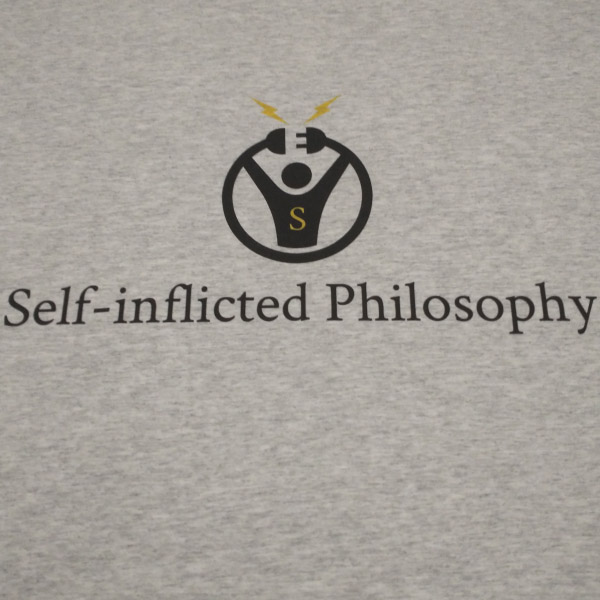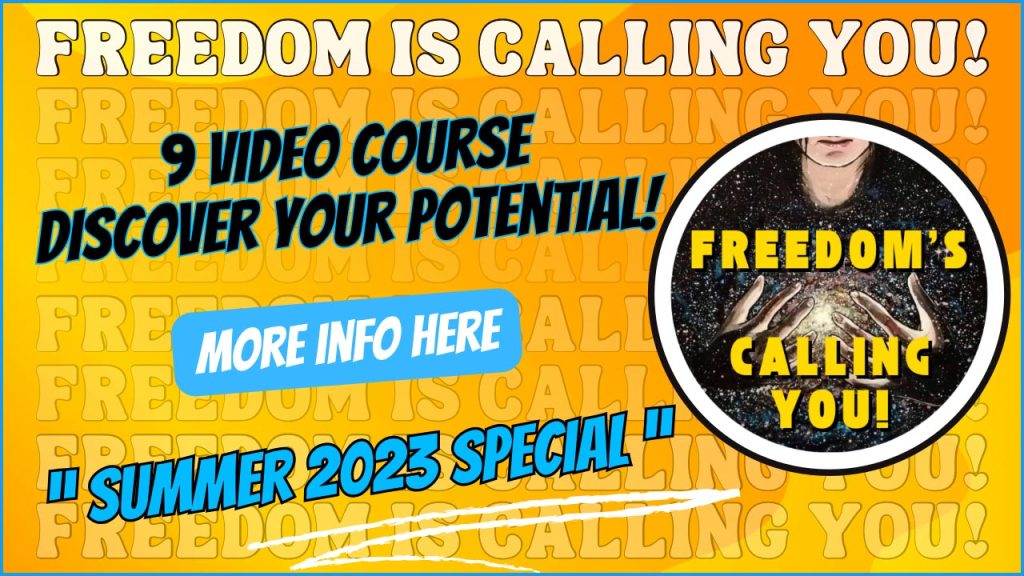www.self-inflictedphilosophy.com
The Seven Deadly Sins of Truth Seekers
(and how to avoid them)
by Gary Z. McGee
“It is better to live your own destiny imperfectly than to live an imitation of somebody else’s life with perfection.” ~Bhagavad Gita
There are many pitfalls along the road to truth. The main pitfall is giving up the Truth Quest for the “truth.” But there are others along the way that act as a series of missteps toward believing in a“truth” over the journey for Truth. They are the seven deadly sins of truth seekers: assumption, expectation, certainty, attachment, acceptance, closemindedness, and self-importance. Let’s break them down…
1.) Assumption:
“All generalizations are dangerous, even this one.” ~Alexandre Dumas
This is the grandfather of pitfalls. Assumptions abound for a creature torn between spirit and flesh perceiving an infinite cosmos with finite faculties. We assume that the world is put here for us. After all, we are the pivot of perception. We seem to be the center of it all. There must be a purpose. There must be a reason why we are here. There must be a point to it all. Right?
How could we not assume things happen for a reason, or that we deserve answers, respect, love? How could we not lean into the primordial chaos with our own vain order?
As William James said, “Understand how great is the darkness in which we grope, and never forget the natural-science assumptions with which we started are provisional and revisable things.”
And that’s the escape route. That’s the way out of the trap. Never forget that your assumptions are provisional and revisable things. There will always be a furthermore.
2.) Expectation:
“Prejudices are what fools use for reason.” ~Voltaire
Speaking of furthermore, expectation is another deadly sin for truth seekers because it puts the cart of anticipation in front of the horse of reason. Hindsight will always trump foresight. And yet we yearn. Yet we thirst. Yet we hope.
As Kierkegaard said, “Life must be understood backward. But it must be lived forward.”
If Hell exists, it’s expectation. All too often the would-be-hero falls because his (or her) expectations were not met. He heads into the journey with petty expectations on one end of the spectrum and delusions of grandeur on the other end, and when neither are met, he is a miserable creature indeed.
So, sinner beware, Hell hath no fury like an expectation unmet.
There will always be unreasonable expectations derived from untenable abstractions. And that is precisely what the would-be-hero must take responsibility for lest he continue to live a life of delusion.
Nip it in the bud from the jump. Nix the ideal of having any expectation whatsoever. Allow the journey to truly be the thing, destinations be damned. This is true courage: the ability to face an uncertain cosmos with an open mind.
It takes courage to choose a flexible disposition over a rigid expectation. It takes courage to choose humility over pride. It takes courage to choose uncomfortable nonattachment over comfortable attachment.
3.) Certainty:
“The very desire to be certain, to be secure, is the beginning of bondage. It’s only when the mind is not caught in the net of certainty, and is not seeking certainty, that it is in a state of discovery.” ~Jiddu Krishnamurti
Sometimes in order to open our mind we must lose it. Sometimes in order to cultivate mindfulness we must embrace No-mind. Sometimes the only way to discover that the “door to our jailcell is open” is to lose the mindset that conditioned us into thinking we were in jail in the first place.
In an ever-changing universe, the only thing we can be certain of is that certainty is folly.
Beware of being convinced. For therein lies all traps. Therein lies irrationality and immoderation. In the war of life, certainty is a sin for which curiosity is the only redemption.
Certainty is like standing water. It becomes murky, poisonous, undrinkable. Clear the water with curiosity. Keep it clean with constant and persistent inquiry. Prevent dogmatism by remaining circumspect and doing as Aristotle advised, “entertain a thought without accepting it.”
When we allow ourselves to be uncertain rather than certain, we allow ourselves to be curious about the world. The world opens wide before us. Suddenly we’re on the edge of our seat. We gaze childlike into its deep mysteries. And as the world comes alive, so do we.
4.) Attachment:
“Security is a false God. Begin to make sacrifices to it and you are lost.” ~Paul Bowles
When we are attached to something, we’re all ego and no soul. We’re all ice and no fire. We’re rigid, hard, and invulnerable at the expense of flexibility, openness, and vulnerability. There’s so much armor around our heart that our soul can’t breathe. Our comfort zone is so tight that our spirit can’t seethe. Our wishful thinking is so powerful that we can’t think through our hope.
When we are in a state of nonattachment, however, Ego is led by Soul. Ego is dragged—kicking and screaming—toward Truth. Our comfort zone snaps, and our spirit is unleashed. Our wishful thinking dissolves and hope becomes a razor-sharp question mark cutting through all things.
Between attachment and nonattachment there lies the Middle Way. The Middle Way is about wholeness, not enlightenment. It’s about truth seeking, not clinging to a “truth” discovered along the way. It’s recognizing that we are all a mighty pivot between attachment and nonattachment, between being and non-being, between form and emptiness.
The Middle Way pierces through the veil. It is absolute balance between opposites, neither leaning toward extremism nor nihilism. It’s epically centered, proactively non-delusional, and excruciatingly whole.
5.) Acceptance:
“The comfortable life lowers man’s resistance, so that he sinks into an unheroic sloth…The comfortable life causes spiritual decay.” ~Colin Wilson
Acceptance is a dead end. It leads to stagnation. It leads to intellectual comfort. Such stagnant comfort leads to complacency, malaise, laziness, ennui, and nihilism. It’s a breeding ground for all the sins on this list.
If, as Aristotle said, “It is the mark of an educated mind to be able to entertain a thought without accepting it,” then it stands to reason that we stay ahead of the curve by not accepting our thoughts but, instead, entertain them by questioning them.
Better to choose dangerous questions over safe answers. Any routine that becomes a rut must be rerouted. All things in moderation, including intellectual comfort. Acceptance tends to lead to wishing and hoping rather than thinking and reasoning.
Self-interrogation is a sound strategy for killing acceptance. It is a method that aggressively asks mind-opening, heart-expanding, soul-shocking questions. It proactively outmaneuvers cognitive dissonance by staying one step ahead of emotion through a ruthless form of higher reasoning that never settles on an answer.
Instead, it tears apart any so-called answers. It decapitates the God of acceptance. From the carnage, it honors what validates cosmic law and discards what doesn’t. But such honoring is still not an acceptance. Rather, it is simply a deeper consideration for higher probability while still entertaining the possibility for infinite wrongness.
Thinking in this way is wielding a question-mark like a sword. It shaves the superfluous. It replaces “belief” with “thought.” It nixes notions of certainty. It upends both stagnant apple carts and carts stuck in front of the “horse.” It opens the Self up to self-overcoming.
6.) Closemindedness:
“Few people have the wisdom to prefer the criticism that would do them good, to the praise that deceives them.” ~La Rochefoucauld
Clinging leads to close-mindedness. It prevents open-minded examination. It cuts off the hero’s seeking energy. It ends the journey. The trick—to remaining fluid, flexible, adaptable, and open-minded—is not to get caught up in the answers discovered along the journey, but to strategically question them instead.
As Scott Adams said, “The human mind is a delusion generator, not a window to truth.” Be that as it may, it stands to reason that some people are more delusional than others. Those who are more delusional are the ones caught up in their delusions. Those who are less delusional are the ones questioning their delusions.
Question your delusions by utilizing probability over possibility. Choose improvisation over tradition. Choose multidimensionality over one-dimensionality. Choose adaptability over resolution. Choose curiosity over certainty. True faith in the interconnected cosmos is not a rigid belief in it but an adaptability toward it.
This means that we should be cautious, circumspect, and vigilant regarding our perception of reality. Otherwise, we reluctantly fall for traps of our own design. Or we get sucked into traps by the designs of others.
The beauty of cultivating a truth seeker philosophy rather than accepting a given “truth,” is that it has the power to help us escape the trap of closemindedness. It has the power to break the spell we’ve cast over ourselves. It has the power to shatter the rigid mental paradigms we’ve unconsciously set in place. More importantly, it has the power to break through constructs of cultural conditioning that have been planted by the outdated reasoning of our forefathers.
7.) Self-importance:
“Out of timber so crooked as that from which man is made, nothing entirely straight can be carved.” ~Immanuel Kant
A good sense of humor is a hero’s saving grace. Without it, a hero is likely to fall out of heroic grace. They are more likely to take themselves too seriously. Heroism that takes itself too seriously can no longer be considered heroic. For it becomes rigid. It becomes dogmatic. It becomes closeminded. It becomes stuck. It becomes a golden idol.
Heroism has only one deadly sin: giving up the Truth Quest (creating your own destiny) for “the truth” (succumbing to a prescribed destiny). A good sense of humor prevents this most deadly sin.
The key is to keep your will to humor ahead of your will to power. Practice humor over hubris. Hang a question mark on all things. Set a tripwire for your pride. Hang a noose around the neck of your acceptance, expectations, and assumptions. Take everything with a grain of salt and some things with the entire saltshaker. Have a laugh at the cosmic joke.
Give yourself permission to play, to mix it up, to enjoy the mystery of being a student at the feet of Infinity.
Remain self-empowered but not so empowered that you become overly serious. A good sense of humor will keep you sharp, playful, and lighthearted. It will keep you ahead of the curve by restraining the hubris and certainty that leads to blind faith.
Best of all, having a good sense of humor will get you through just about anything. Even the seven deadly sins of truth seekers. And even if it doesn’t, at least you’ll be able to laugh about it. There is nothing more powerful than a good sense of humor despite the trials and tribulations of the path.
Image source:
Cyborg Trapper Keeper by Beeple
About the Author:
Gary Z McGee, a former Navy Intelligence Specialist turned philosopher, is the author of Birthday Suit of God and The Looking Glass Man. His works are inspired by the great philosophers of the ages and his wide-awake view of the modern world.
This article (The Seven Deadly Sins of Truth Seekers (and how to avoid them)) was originally created and published by Self-inflicted Philosophy and is printed here under a Creative Commons license with attribution to Gary Z McGee and self-inflictedphilosophy.com. It may be re-posted freely with proper attribution, author bio, and this statement of copyright.















